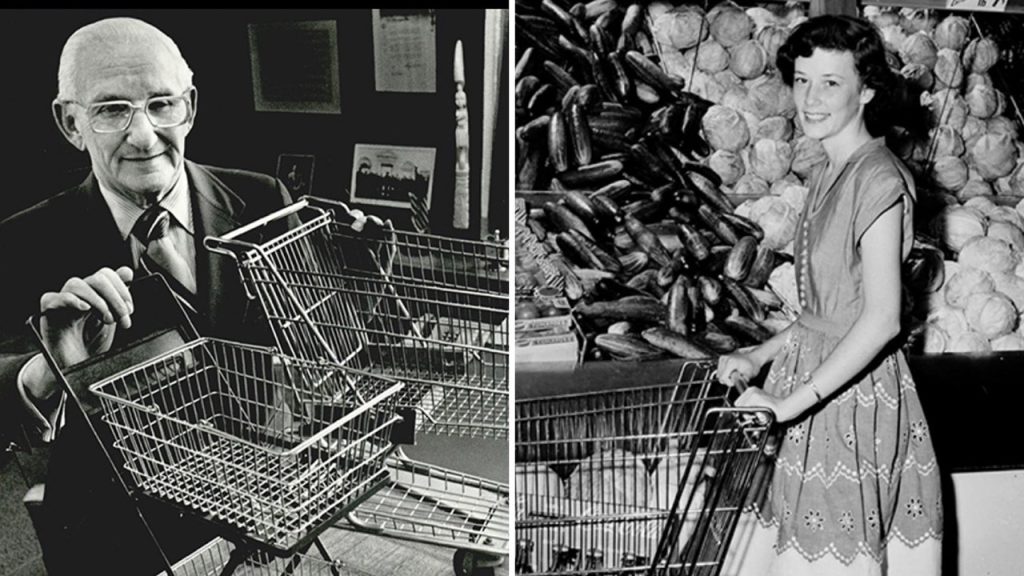Sylvan Goldman, the man behind the invention of the shopping cart, was born to immigrant pioneers in Oklahoma in 1898. His father was originally from Latvia and his mother from Alsace-Lorraine. Goldman grew up in Ardmore, Oklahoma and learned the retail business working in his family’s dry goods store. He enlisted in the U.S. Army during World War I and served as a mess cook, feeding soldiers on the front lines. After the war, he entered the grocery store business with his brother and eventually purchased the struggling Humpty Dumpty chain of grocery stores in 1934.
Goldman’s innovative idea for the shopping cart was conceived in 1937 and introduced at his grocery stores, revolutionizing the merchandising world. The shopping cart featured a collapsible frame with wheels and a wire shopping basket, making it easy for customers to transport their items around the store. Despite initial resistance from the public, Goldman employed marketing tactics to make the shopping cart a success. Today, shopping carts are a staple in supermarkets around the world, with millions in use daily. Goldman’s legacy includes philanthropic efforts and support for education, healthcare, and the arts in Oklahoma.
Goldman’s invention came at a time of economic hardship and ecological disaster, during the Great Depression and the Dust Bowl. His Jewish heritage and upbringing in a multiracial society shaped his perspective and success as a businessman. Goldman’s contributions to the retail industry and consumer culture are praised as one of the greatest developments in merchandising history. His innovation paved the way for supermarkets and online retailers to adopt the concept of the shopping cart for convenient shopping experiences.
Goldman’s philanthropy and business empire, built from the success of the shopping cart, left a lasting impact on Oklahoma and beyond. His generosity towards organizations like the Oklahoma Blood Institute and support for education and the arts showcase his commitment to giving back to the community. His legacy is commemorated in various ways, including a park named after him and an award in his honor. The ubiquity of shopping carts today is a testament to Goldman’s entrepreneurial spirit and ingenuity, as millions roll across the aisles of markets worldwide.
Goldman’s story exemplifies the immigrant’s son who worked hard and took risks to build a successful business. His impact on the retail industry and consumer culture is significant, with the shopping cart becoming an essential tool for shoppers. Without his invention, the supermarket experience as we know it today may not have been possible. Goldman’s legacy lives on through the widespread use of shopping carts and the appreciation for his contributions to merchandising and commerce.















